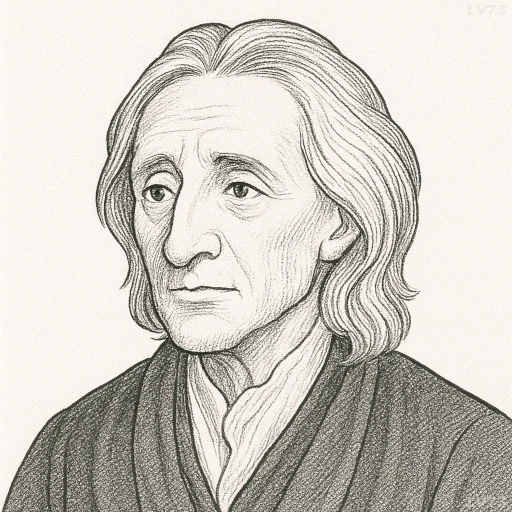“We should have a great fewer disputes in the world if words were taken for what they are, the signs of our ideas only, and not for things themselves.”

- August 29, 1632 – October 28, 1704
- Born in England (UK)
- Philosopher and political thinker
table of contents
Quote
“We should have a great fewer disputes in the world if words were taken for what they are, the signs of our ideas only, and not for things themselves.”
Explanation
In this quote, John Locke highlights the misuse of language as a source of conflict and misunderstanding. He argues that many disputes arise when people mistake words—which are merely symbols for our ideas—for the things themselves. According to Locke, words should be understood as tools for expressing thoughts, not as representations of the objects or concepts they describe. By recognizing that language is not the same as reality, people could avoid much of the confusion and disagreement that arises when individuals fail to realize that different people may have different interpretations of the same word or idea. This insight is part of Locke’s broader philosophy about knowledge and communication, where he advocates for clarity and precision in the use of language.
Locke lived during a time of significant political and philosophical upheaval, where ideas about religion, government, and society were vigorously debated. Language, in this context, was a powerful tool that could both clarify and obscure meaning. Locke recognized that the imprecision of language could lead to misunderstandings, especially in the realm of political philosophy, where ideas about rights, freedom, and authority often became entangled with words that carried multiple meanings. He sought to bring clarity to these debates by suggesting that words be carefully examined and understood as symbols of our internal ideas, not as absolute representations of external reality.
In modern times, Locke’s observation is highly relevant in our digital age, where communication happens rapidly and often in written form. Much of the miscommunication and conflict in online discourse, social media, and even political debates stems from differing interpretations of words. For instance, terms like freedom, justice, and equality can mean different things to different people, yet they are often used in heated debates as if everyone shares the same understanding. Locke’s insight reminds us that clear communication and an understanding of the subjectivity of language are essential in reducing unnecessary disputes and fostering more productive and harmonious conversations. His argument encourages us to be more mindful of the way we use language and to recognize that words are not always perfect reflections of the world around us.
Would you like to share your impressions or related stories about this quote in the comments section?
